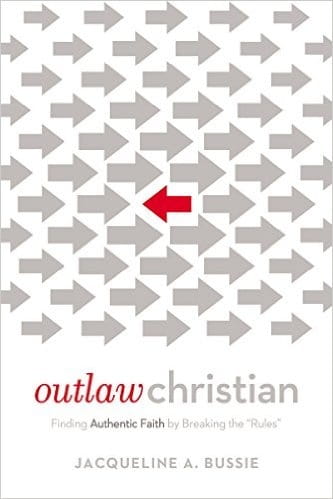3 Misleading Rules You Need to Start Breaking

3 Rules Christians Should Break
#1. ALWAYS APOLOGIZE FOR TEARS.
When someone starts to cry in front of you, what is the first thing they usually say? What is the first thing you say when your broken heart makes you cry in front a friend? “I’m sorry,” we all say. But Christians must ask, are tears really wrong, mean, disrespectful or embarrassing—something that merits an apology? Our culture teaches us that grief and sadness are unwelcome and shameful, but scripture teaches the opposite. When Jesus saw that his friend Lazarus was dead, he wept (John 11:35). Jesus cried even though he knew he would resurrect Lazarus five minutes later (!).
Obviously, Jesus grieved his heart out and hoped like mad at the same time, and thus models for us what an authentic Christian faith looks like in a broken world. Jesus’ tears reveal that even though Christians believe in redemption and resurrection, we can and should mourn death. Jesus’ cries show us that it is okay to cry and wail our hearts out whenever and wherever the world tries to trample on hope’s face. What could God be doing through Jesus’ tears besides showing us that our tears are legitimate, and never more so than when someone we love has died?
Remember: the cross reminds us that God understands our grief from the inside out. Let’s stop apologizing for tears; tears are our divine birthright.
#2. DON’T AIR YOUR DIRTY LAUNDRY.
For our entire lives, many of us are taught to be keep our real story a secret—especially stories about sexual assault, abuse, miscarriage, or mental illness. “Don’t be a downer.” Where is the place in our culture to openly lament life’s true traumas?
Everyone’s life has scars, but we are taught not to share them. The unfortunate results? Shame, secrecy, and loneliness. Everyone feels alone in their grief, when really this is a lie. In our culture, scars are stigmas. Tellingly, Christians even refer to the scars in Jesus’ hands and feet as stigmata, meaning a sign of disgrace or shame.
In the Bible, however, Jesus refuses to see his scars as a source of humiliation or shame, or even as a thing to keep hidden. Instead, Jesus readily and boldly shows his scars to his friends. When the resurrected Jesus meets the disciples, he immediately “showed them his hands and his side” (John 20:20). Similarly, when Thomas asks to see Jesus’ scars, Jesus responds, “Put your finger here and see my hands” (John 20:27).
In this passage, Jesus flat-out rejects the rule that we should be ashamed and secretive about the unjust and terrible things other people have done to us. (And Thomas breaks the rule that it is improper to ask other people about their scars.) Have we neglected to see that scripture reveals that scar-sharing brings resurrection and real relationship? Following Jesus’ bold outlaw example, Christians are called to share their scars with one another on their journey toward mercy and healing.
#3. Always speak in clichés about evil and suffering.
Let’s face it, we live in a cliché-culture. Whenever we are hurting, well-intentioned folks bombard us with greeting card wisdom like “Everything happens for a reason” and “God needed another angel.”
The Bible, however, encourages a more complex response to our complicated world than platitudes can provide. The Bible gives us license to lament. I define a lament as a tear put into words.
The Bible has an entire book called Lamentations, in which the Jewish people cry out to God after the destruction of Jerusalem. “Why have you forgotten us completely? Why have you forsaken us these many days? Restore us to yourself, O Lord” (Lamentations 5:20–21).
In the book of Job, Job also laments. Declares Job, “I will not restrain my mouth. I will speak in the anguish of my spirit; I will complain in the bitterness of my soul” (Job 7:11). Job says to God, “Bold as a lion you hunt me…Why did you bring me forth from the womb? (10:16–18)
If you feel whiny, guilty or ungrateful saying such words yourself, consider this: in a shocking twist at the end of the book, God affirms all Job has said. While we expect that God would be furious with the things Job has said, and side with Job’s friends who have done nothing but speak in clichés about Job’s suffering, God does nothing of the sort. When God appears in the whirlwind, God sides with Job and disparages the friends and their sugar-spun clichés, “The Lord said to Eliphaz the Temanite: “My wrath is kindled against you and against your two friends; for you have not spoken of me what is right, as my servant Job has” (42:7–8).
The lesson? God wants to hear your laments, and God can handle them. When we lament, we put not only all of our sorrow upon God’s shoulders, but also all of our hope into God’s hands. This is a paradox for sure, but is the very truth a lament invites us to tell.
It’s time to break the rules.
This article is adapted from the book Outlaw Christian by Dr. Jacqueline Bussie.

Publication date: May 11, 2016
Originally published May 11, 2016.







